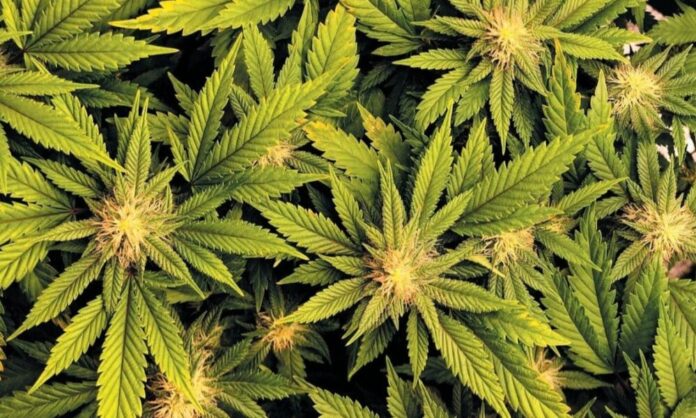Sri Lanka’s first legal cannabis cultivation project for medicinal export has now moved from policy to implementation, yet the government’s landmark decision is unfolding amid an escalating storm of religious protests, civil society objections, and public mistrust.
The Cabinet this week confirmed that seven foreign investors have been approved to commence cultivation on a 64-acre site in Mirigama, marking the first time such a venture has been sanctioned under Sri Lankan law.
The project, originally approved in April 2024 under then State Minister of Indigenous Medicine Sisira Jayakody, is being rolled out under a stringent regulatory framework designed to reassure both local communities and international buyers.
Health and Mass Media Minister Dr. Nalinda Jayatissa announced that investors must commit at least US $5 million in capital along with a US $2 million security deposit held by the Central Bank. Cultivation licenses, valid for six months at a time, will require clearance from the Ayurveda Department, Ministry of Environment, and Ministry of Public Security, while the Special Task Force and police will provide round-the-clock security.
All cannabis plants must be imported and strictly confined to export markets in North America and the European Union, with the government insisting that not a single gram will be diverted to local markets.
The government’s economic argument is anchored in the explosive growth of the global medicinal cannabis industry. Analysts project the worldwide cannabidiol market will rise from US $5.49 billion in 2019 to over US $26 billion by 2027, while the industrial hemp sector, which includes medicinal cannabis, is expected to grow from US $7.9 billion in 2023 to nearly US $32 billion by 2030.
Sri Lankan officials believe the country’s Ayurvedic heritage, coupled with its strategic location, will position it as a competitive and reputable supplier.
They also point to the potential for significant job creation, with Board of Investment data suggesting that large-scale export agriculture projects in zones like Mirigama could collectively generate over 75,000 direct and indirect jobs and bring in more than US $2.6 billion in foreign exchange annually.
Investor interest in the scheme has been strong. Out of 37 applicants, seven companies have been selected in the first round, all of them foreign-backed and well-capitalized.
The government says this ensures access to advanced cultivation technology, quality control, and compliance with the rigorous testing demanded by premium overseas markets. Officials stress that by limiting participation to highly funded investors and maintaining multi-agency oversight, Sri Lanka can protect its domestic market while capturing lucrative export revenues.
However, the project’s rollout has unleashed a wave of social and political backlash. Today, Buddhist clergy led by the Asgiri Chapter warned that cannabis cultivation, even under the guise of medicinal production, is morally and culturally inappropriate.
Senior monks described the move as a “national disaster” that risks normalizing drug use. Civil society groups such as the Alcohol and Drug Information Centre echoed these concerns, warning that no regulatory framework can guarantee zero leakage into the domestic market and that illicit diversion is inevitable when “good money” is involved.
Social media reactions have been equally scathing, with users warning that cannabis could serve as a gateway to more dangerous drugs and that the policy prioritizes foreign profit over public welfare.
Human rights observers have also linked the controversy to Sri Lanka’s shrinking civic space, noting that recent years have seen increased restrictions on protests and dissent. Activists argue that the government’s willingness to push through such a socially contentious policy without broad public consultation reflects a deeper democratic deficit.
For now, the cannabis fields in Mirigama remain under heavy guard, the government confident in its ability to deliver both economic returns and regulatory compliance.
Yet the protests on the streets and the moral outrage from the pulpit suggest that Sri Lanka’s entry into the global medicinal cannabis trade may prove as politically combustible as it is financially ambitious.
Whether the projected billions in export revenue will outweigh the cultural, social, and political costs is a question that will be tested in the seasons ahead.
